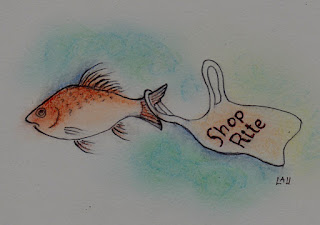My violinist father always worked on holidays. Even on Christmas Day, while the rest of us were still eating the capons that my maternal grandmother had sent to Barcelona from her farm, my father would pull out his pocket watch, drain his glass of champagne, and say, “time for me to go.” He would go around the table and kiss his mother, his father, his two sisters, my mother, and me and, after admonishing my mother not to wait up for him, pick up his violin and vanish into the night.
The year I was eight, a concert was cancelled and he was free on New Year’s Eve. Since he worked outside the house most nights of the week, my mother thought it would be exciting, instead of going out, to celebrate by staying home. She explained to me that because this celebration, which she called by its French name, réveillon, would happen at midnight, I would not be included, but I could participate in the preparations.
In the early December dusk we set out to buy the food. First, we went to the fruit seller to buy grapes, because in Spain on New Year’s Eve you need to eat one grape with each stroke of midnight, for luck. Then we went to the xarcuteria, to buy foie gras, xorisso, ham sliced so thin you could almost see through it, and five different kinds of olives. Next we stopped at the wine store for a bottle of Catalan bubbly. On the way to the bakery we passed the church. A gypsy woman with a baby, her hand outstretched, huddled on the steps. My mother gave her some coins, and as we walked away with our net bag bursting with good things to eat she said to always remember how lucky we were to have food, and a house to live in.
The réveillon would take place not at the regular dining room table, but at the smaller, more intimate brazier table. This was a round table with a wooden framework that supported the brazier a few inches above the floor. My mother would decant hot coals into the brazier and cover the table with a floor-length tablecloth made of green felt. On cold afternoons she would pull up a chair, lift the cloth over her lap, rest her feet on the edge of the brazier, and sew or read in comfort in our otherwise unheated apartment. For the réveillon, she covered the felt cloth with a smaller, white Belgian-lace cloth.
The most important aspect of the réveillon wasn’t food, but romance. She and my father had to match the elegance of the tablecloth, the starched napkins, the candles (which we normally reserved for brownouts, a frequent occurrence in the years after the Spanish Civil War), and the cut-glass goblets.
I desperately wanted to see this part of the preparations, so well before midnight my mother put on her black, floor-length evening dress. It was fitted at the waist, and fell straight to the floor with a pleat at the back. The décolletage was modest, and the narrow sleeves reached to her elbow (my family was as conservative in dress as it was liberal in displays of affection). She wore pearls around her neck and her white fur stole around her shoulders. The latter was not for show. In winter, whenever she wasn’t sitting at the brazier my mother was always cold.
She had my father dress up too. The only hitch was that my father’s dress clothes—his tailcoat and white piqué vest and bow tie—were also his work clothes, but he nevertheless looked romantic in them. For a moment they stood smiling side by side in front of the brazier table so I could admire them, and then they sent me to bed.
How is it that I
remember, as clearly as if I had been there, my mother and father drinking
champagne and feeding each other grapes with each stroke of midnight, and then
dancing to my father’s favorite slow foxtrot (“Night and day, you are the one…”),
her head on his shoulder, his mustache tickling her neck? It must have been the
glow on their faces as they let me see them in their glory, which even to my
childish eyes held all the rest—the wine, the candles, the grapes, and the
dance.














